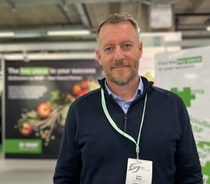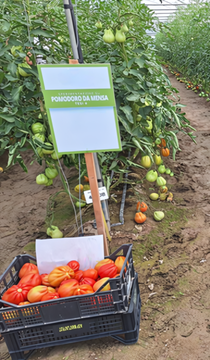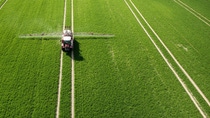Agriculture
Seaweed is transformed into biostimulants for climate-stressed agricultural crops
The uses for seaweed today are growing fast: from food additives to diapers and other hygiene products. Now seaweed is leaving the ocean and making its way to the farm. Extracts of seaweed have a surprising growth-promoting effect on crops, especially when extracted and specifically formulated for agricultural applications, as the innovative company Acadian Plant Health™ has done. Find out how seaweed can play a role in strengthening climate resilience, and how BASF is helping to make sure farmers across the world have access to this technology and others that are helping agriculture become more sustainable.
Bake in the hot sun then take a dip in the cold sea. Repeat. What sounds like a great day at the beach is actually an extreme environment for most plants to survive. However, a particular type of marine plant has figured out how to live in this intertidal zone – seaweed. Is it possible to share their tricks of tolerance to changing weather conditions with farmers who are now facing increasingly challenging weather conditions to grow the food crops that feed the world?
Acadian’s seaweed extract is like a "message in a bottle"
Plants might not be able to talk to each other but with a little help from Acadian biostimulants, the secrets on how seaweed thrives in extreme weather can be shared with crop plants. “There are thousands of varieties of seaweed, but they don’t all have the same level of efficacy. However, off the Eastern coast of Canada, there is one with incredible adaptability to extremely hot, dry, wet and freezing conditions,” James explains.
“For the past 40 years, we have been perfecting our extraction process of Ascophyllum nodosum seaweed to isolate the most beneficial active compounds that could help other plants tolerate changing environmental conditions.”
More recently Acadian formulated a new Abiotic Stress Management line of products building on decades of experience with seaweed extract-based biostimulants.

These new formulations are engineered to help crops withstand environmental stressors such as drought, heat, and salinity- forces that are increasingly eroding farmers' ability to cultivate stable, high-yielding crops.
Acadian’s seaweed extract is like a message in a bottle, where the lifesaving message from seaweed is passed to crops through soil and foliar inputs of the biostimulant.
“We’ve now developed a portfolio of natural biostimulants that are pushing the boundaries of what’s possible when it comes to crop resilience — and especially now with the challenges posed to farmers by extreme weather conditions and environmental stressors, we are partnering with BASF to make sure even more farmers have access to these tools,” James says.
How seaweed is transformed into a reliable climate-smart solution
Photos courtesy of Acadian Plant Health™
BASF partners with Acadian to answer the call for climate solutions
As weather becomes more challenging and unpredictable around the globe, BASF recognized that farmers are increasingly using these types of biological solutions and wants to ensure that customers have access to the more innovative products with proven performance. “Climate stress can devastate agriculture. Conditions like drought, heat and flooding can negatively impact our customer’s yield as much as or more than diseases and pests if not managed,” says Stefan Tresch, Head of Head of New Technologies and BioSolutions for BASF’s Agricultural Solutions business.

When we look into partnerships for biologicals, we evaluate technology. We need to show they really contribute at the farmer level to performance or managing residues or resistance.

“We wanted to be convinced of the performance for stress tolerance, so ran our own trials in Europe on tomatoes and grapes and they showed a clear benefit to including the Acadian products in the treatment protocols,” Stefan explains.
Stefan and his team are constantly on the lookout for technologies that would benefit farmers. “We want our customers to have the best potential for yield and profitability, and we know this means integrating solutions from partners. We can give them great yielding seed varieties and the right solutions to manage pests, weeds and disease, but now it is becoming increasingly important to also support farmers with resilience to tough weather.”
BASF plans to integrate the seaweed biostimulants into its offering of tailored combination of solutions that meet the needs of farmers in specific regions. “There is a particularly strong demand in Europe for biological solutions, and this partnership is yet another way that we are working to provide an even more holistic solutions toolbox of chemical and biologicals to farmers there and in other regions,” Stefan says.
Just like a message in a bottle delivers important information, the partnership between BASF and Acadian will ensure that farmers around the world have access to the stress-protecting biostimulants that can help them weather the challenges of climate change and continue to feed the world – the biggest Job on Earth.
Published November 7, 2024
For media inquiries or to repurpose the story, please contact:
Verena Kempter, BASF Agricultural Solutions
Shannon Wentz, Acadian Plant HealthTM



